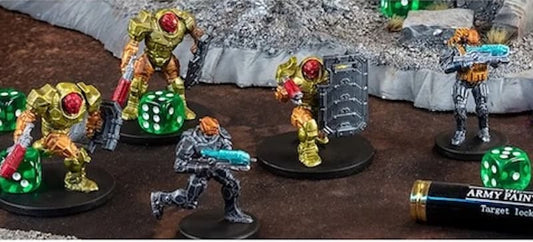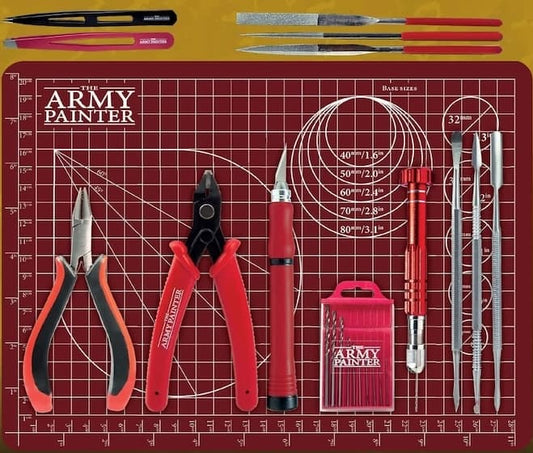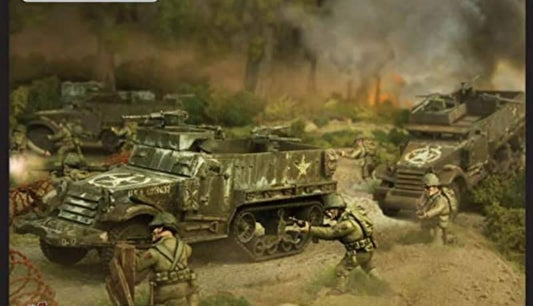Misconceptions about wargaming are everywhere. From exaggerated tales of its complexity to misunderstandings about who plays it, these myths can deter newcomers and skew perceptions. This post aims to clear the air and reveal the true, inclusive nature of wargaming. Here are ten common misconceptions about wargaming debunked.
1. The majority of tabletop miniatures wargaming takes place in stores and tournaments.
This idea that you need to be in a store to get the real wargaming experience misses a huge part of the picture. Most games aren't happening where you might think—they're happening at home, far from the competitive hustle, in spaces where laughter and strategy mix freely. So, if the thought of stepping into the arena has you second-guessing, remember: there's a whole world of wargaming waiting right at your doorstep, or your friend's.
2. You must keep up with every new rule and version to stay relevant in wargaming.
This myth can make wargaming look more like a chore. The truth is, how you engage with the hobby is entirely up to you. Stick with your preferred versions, adjust rules with friends, and enjoy the game your way. Wargaming thrives on your terms, proving there's no need to chase every update to have a great time.
3. Wargaming is behind card and board games in adoption and popularity.
In miniature wargaming, players spend lots of time painting tiny soldiers and setting up detailed battles. This process is intense and creative but doesn't always get the spotlight. But let’s not forget that miniature wargaming has a big, passionate community. Events for wargamers draw thousands, and online forums are full of lively discussions. The truth is that wargaming is as loved and active as any other game type—it’s just not as visible in the mainstream.
4. Wargamers prefer to be alone.
Some think that people who play wargames don't like company. That's not right. Many different kinds of people enjoy wargaming together. They gather to share stories and strategies about their games. These gamers often talk a lot and have fun in groups, especially when they're around others who enjoy the same games.
5. Wargaming can be used to predict future scenarios.
Wargaming is seen by some as a way to predict future conflicts precisely. While it’s true that military and civilian organizations use wargames for planning, these simulations are about exploring possibilities, not making exact predictions. They help in understanding strategies and outcomes, but they can't predict every real-world event. The value of wargaming lies in preparation and education, not in its ability to predict the future with certainty.
6. Wargaming is only for history buffs.
It's a misconception that only people who are deeply into history enjoy wargaming. While historical battles often inspire wargames, the hobby also appeals to those who love strategy, creativity, and the challenge of competition. Wargames come in various themes, including fantasy and science fiction, attracting a wide audience beyond just history enthusiasts. The core of wargaming is about tactics and decision-making, which can intrigue anyone with a love for games.
7. The more complicated a wargame, the better.
Some may think that the denser and more detailed the rulebook, the better the game. Not true! Especially if you're just starting out, simpler games can be just as fun and rewarding. They can ease you into the hobby and let you focus on enjoying the game rather than getting bogged down by rules. Complexity doesn't equal quality.
8. It's difficult to find other hobbyists.
Finding opponents might seem tough, especially for less popular games. However, the solution might be closer than you think. Introducing friends or family to wargaming can create new gaming partners. Also, online communities and local gaming stores can be great places to meet fellow gamers. Remember, wargaming is about community, and there's always someone out there to join you on the battlefield.
9. You must paint miniatures everyday to do it well.
Some believe that unless you're painting miniatures every day, you're not a real hobbyist. That's not the case. Painting is a skill that develops over time, at your own pace. While regular practice helps, even painting once in a while can lead to improvement and enjoyment. The hobby is about fun, not pressure.
10. Only big companies make quality games.
Wrong again. While big names in the industry often produce popular games, there's a whole world of amazing games from smaller publishers. These games often bring fresh ideas and unique experiences you won't find in the mainstream. Exploring these can enrich your gaming life and support the broader gaming community.
It’s Not What You Think
Wargaming is a hobby that attracts various individuals for various reasons. While it may not get the attention and hype of the latest video game, it still has a dedicated and strong following. Not sure if wargaming is for you? The best way to find out is to give it a try. Not into complex games? Wargames have a variety of themes, and some are quite approachable for novice players. Talk to others about the games they love, and you just might find your new favorite hobby.
Video
Infographic
Misconceptions about wargaming are widespread, from exaggerated complexity to misunderstandings about its players. In this infographic, we debunk ten common myths about wargaming.




